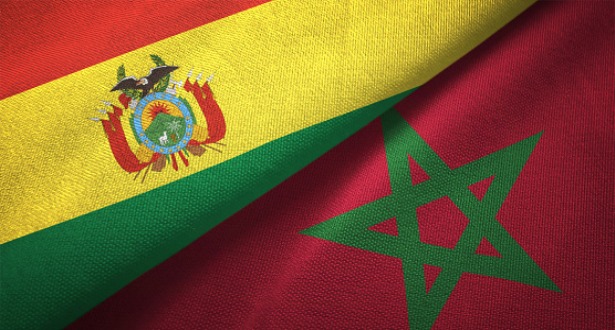by Latifa Babas
Months after the start of its political crisis, Bolivia has decided to “suspend ties with the ‘Sahrawi Arab Democratic Republic’ (SADR)”, the country’s Foreign Affairs Ministry said in a statement released Monday, January 20.
The interim government in La Paz, “based on the explanations provided by the Kingdom of Morocco”, has promised to “maintain constructive neutrality and support the efforts of the United Nations and the international community so that the parties reach a just, long-lasting and mutually acceptable solution based on the principles and objectives of the Charter of the United Nations”.
Bolivia calls for dialogue between the parties
“Bolivia is determined to build a renewed relationship with the Kingdom of Morocco, based on mutual respect for national sovereignty, territorial integrity, and non-interference in the domestic affairs of the two countries”, the Bolivian Foreign Ministry said in the same communiqué.
Meanwhile, the ministry wrote that the country has “called the parties” involved in the Western Sahara conflict “to make use of all mechanisms of dialogue and diplomacy to resolve the issue as soon as possible”. The South American country also urged the “international community and the member states of the Arab Maghreb Union to strengthen their efforts to ensure stability and security in the region”.
Bolivia’s decision comes as the country has been witnessing major changes since November 2019, when trade unions, the military and the police of Bolivia suggested that president Evo Morales resign. On May 3, Bolivia will hold presidential elections, which may insure the return of the former regime.
Indeed, at a news conference in Argentina, where he currently lives, former Bolivian President Evo Morales named, Sunday, a former economy minister as his party’s candidate for president.
For the record, since 2019 a series of political changes in Latin America has allowed Rabat to gain ground in the region especially when it comes to the Western Sahara conflict.
In January, Venezuela took the lead by pledging to strengthen diplomatic ties with Morocco. Venezuelan opposition leader Juan Guaido said in a phone call with Moroccan Foreign Affairs Minister Nasser Bourita, on January 29, that he wants to establish “open, solid and extended” ties with the Kingdom.
Western Sahara in 2019… a year of withdrawals and a setback for the Polisario
Months later, Guaido appointed Jose Ignacio Guedez as his «special envoy» to Rabat. Months after his appointment, Guedez attended a meeting alongside diplomats accredited by Morocco in Rabat.
In June, El Salvador, another Latin American country, withdrew its recognition of «SADR». The decision was announced after Foreign Affairs Minister Nasser Bourita visited the country as part of a tour to Latin America. During the same month, Barbados followed in the footsteps of El Salvador withdrawing its recognition of the “SADR” during a visit conducted by the country’s Prime Minister Mia Mottley to Morocco.







